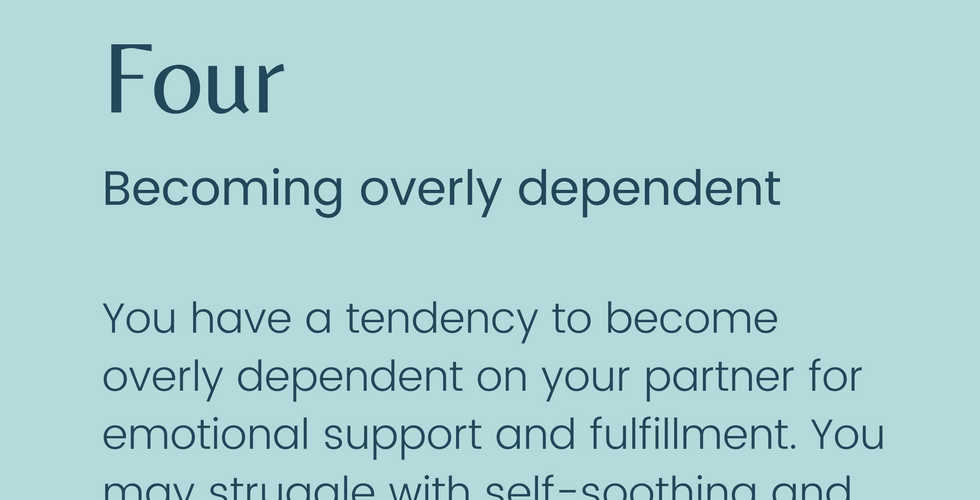6 Signs of Anxious Attachment
- Clair Morrow

- Jun 27, 2023
- 2 min read
An anxious attachment style is characterized by a strong need for validation, reassurance, and closeness in relationships. If you suspect that you may have an anxiously attached style, here are six signs that might indicate this:
1. Constantly seeking reassurance: You continuously seek reassurance from your partner, wanting them to affirm your worth, love, and commitment. You may feel insecure if you don't receive constant validation, leading to anxiety and fear of abandonment.
2. Overanalyzing and overthinking: You tend to overanalyze every aspect of your relationship, often dwelling on small details or interpreting innocent actions as signs of rejection. This overthinking can create unnecessary tension and strain in your relationships.
3. Fear of abandonment: You have an intense fear of being abandoned or rejected by your partner. This fear may manifest as clinginess, always needing to be close to your partner or having difficulty with being alone.
4. Becoming overly dependent: You have a tendency to become overly dependent on your partner for emotional support and fulfilment. You may struggle with self-soothing and rely heavily on your partner to regulate your emotions.
5. Jealousy and possessiveness: You may experience frequent bouts of jealousy, feeling threatened by the possibility of your partner being attracted to or interested in someone else. This jealousy may lead to possessive behaviours and a need for constant reassurance of your partner's fidelity.
6. Difficulty setting boundaries: You find it challenging to establish and maintain healthy boundaries in your relationships. You may have a tendency to merge your identity with your partner's, neglecting your own needs and desires to maintain the relationship.
It's important to note that having an anxious attachment style doesn't mean something is inherently wrong with you. It simply indicates a particular way of relating to others that can be understood and worked on through self-reflection, communication, and potentially therapy. Developing self-awareness and cultivating self-confidence can help you navigate relationships in a healthier and more secure manner.


















Comments